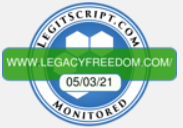Which Type of Recovery Journal Will Benefit You?
Journaling is a frequently used tool in addiction recovery. It gives you the chance to write down thoughts, process ideas and work through emotions and feelings in a safe, judgement-free space. It allows you to visualize goals and plan how you’re going to achieve them. It helps you reflect on your progress, giving thanks for the victories and learning from the setbacks.
If you’re thinking journaling could benefit your recovery, you’re not wrong. With plenty of recovery journal types, you’re guaranteed to find one (or more) which benefits your recovery and gives you a creative outlet at the same time.
Types of recovery journals
The importance of keeping a journal lies in what you’re hoping to achieve; in other words, depending on your personal goals, you can use different journaling strategies to help you take steps towards meeting these goals.
Consciousness journal
A consciousness journal is a great way to help you get you comfortable with writing. Schedule a specific time each day, or every other day, to write down whatever it is you are thinking of in that moment. Write about an encounter with a puppy you had at the park. Jot down thoughts of what you’re doing for dinner or what time you have to go to work the next day. Talk about the new restaurant you found over the weekend.
This exercise is spontaneous. It should be done in a way that isn’t edited, revised or stalled. Don’t worry about grammar or spelling. Just go with the flow and write down everything that crosses your mind during the exercise. You can spend five minutes on it or fifteen. The purpose of this kind of journaling is to get you comfortable recognizing what’s going on in your mind and putting it down on paper. Then, once you’ve grown comfortable writing down random thoughts, you can begin to channel them into more focused insights.
Personal journal
A personal journal is a daily log of what occurred throughout the day – it’s more like a diary in that you can record events that happen in your daily routines and your responses or reactions to them. Use this as a place to talk about your struggles and victories. What did you do to succeed and how did you learn from the setbacks? During the challenging times of recovery, you might go back through this journal and find inspiration from your past personal narrative.
Gratitude Journal
Negative thinking plagues an addicted mind, but in recovery a strong emphasis is put on positivity and gratitude. If you find yourself still struggling with negative thoughts during recovery, consider taking up gratitude journaling. If you take only five minutes each night to write down three things you are grateful for (try finding those three things within the present day), you will begin to see life in a more positive manner and be better at finding beauty in the most unexpected places.
Spiritual Journal
It’s possible you’ve undergone spiritual growth during your recovery. Take time to write down these thoughts, feelings and experiences so you can process this growth and discovery. You can even use your journal as a tool for prayer or meditation. You might begin to recognize the presence of God or a Higher Power in your life as you take note of spiritual or inspirational moments that occur. A spiritual journal can help you keep your thoughts straight as you reflect and remember – as well as appreciate – your recovery and how you got to this point.
Health Journal
It’s important to incorporate exercise, healthy eating and routine sleep into your life after addiction. After all, once you begin living a healthy routine, you might find yourself less tempted to return to substance use. Writing down your goals, successes and setbacks can keep you motivated, accountable and focused. You can use it as a record of what worked, what did not and what you’re going to do to continue pushing and growing in your physical (and mental) health journey.
Support and strategies in addiction recovery
While the importance of journaling in recovery cannot be denied, there is also much to be said for seeking addiction treatment. If you think you’re suffering from an addiction and need the guidance and tools of detox and counseling, consider Freedom Detox’s alternative therapy options for alcohol and drug treatment in Charlotte NC. Whether you’re seeking help for yourself or a loved one, feel free to contact us for more information. Visit our website anytime, or give us a call at (704) 481-6743.










